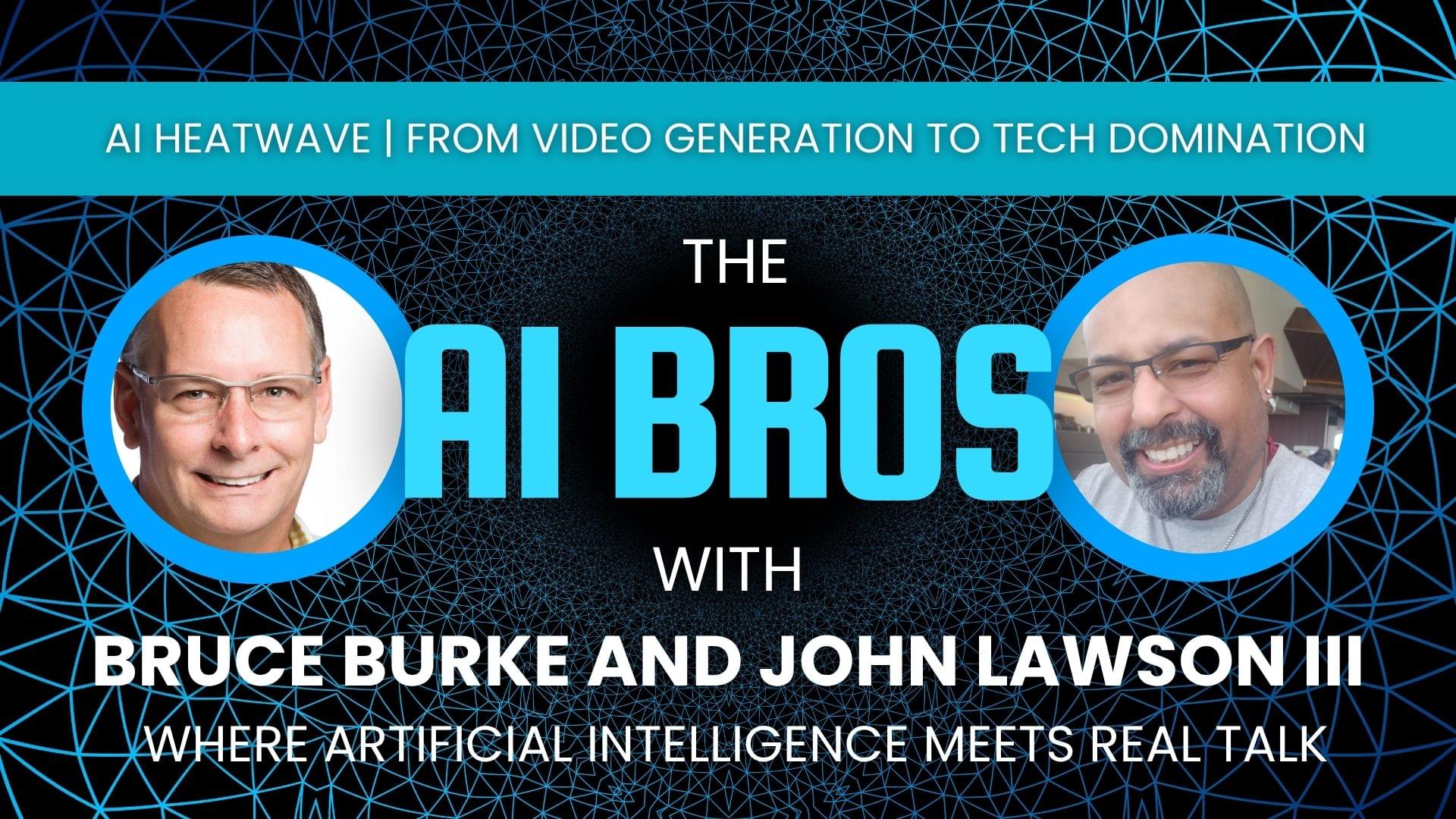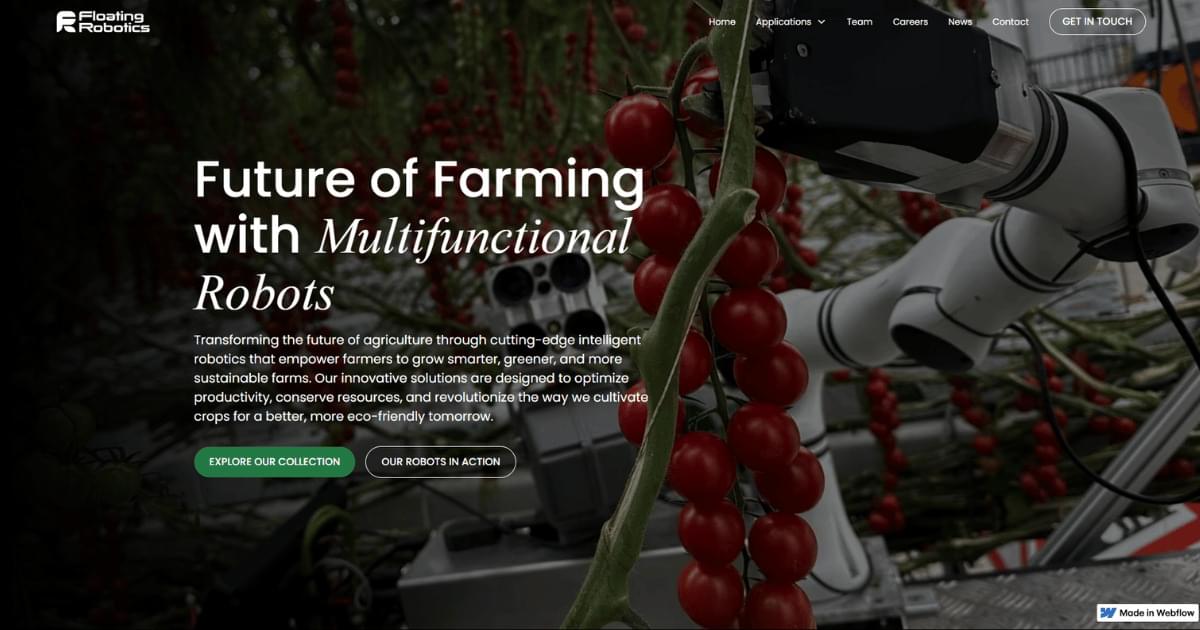A solar-powered retinal implant and AI-enhanced glasses have enabled blind patients to read again.



Rocket maker Firefly Aerospace filed for an initial public offering on Friday, with plans to trade under the ticker symbol “FLY” on the Nasdaq.
Firefly’s planned offering comes during a resurgence period for IPOs after the market collapsed in 2022 as rising interest rates and skyrocketing inflation deterred investors from betting on riskier assets.
Some companies, including Klarna and ticket reseller StubHub, delayed public offerings earlier this year as President Donald Trump’s tariff plans rattled global markets. But venture capitalists are becoming more optimistic after a strong June for deal activity that included a surge in crypto company Circle and a major Meta Platforms deal with Scale AI. Figma also filed its prospectus earlier this month.


Our compact AI-driven robotic solution brings intelligence and efficiency to greenhouse automation. With 3D vision, onboard Edge Computing, and advanced AI, it detects, analyzes, and interacts with crops in real time. Mounted on a mobile platform, it can perform any of our 4 tasks and seamlessly integrates into any greenhouse to maximize yield and efficiency.
Discover Floating Robotics’ cutting-edge robotic systems designed to automate greenhouse tasks like harvesting and de-leafing, enhancing efficiency and sustainability in modern agriculture.


Meta has announced new tools to help WhatsApp and Messenger users protect themselves from potential scams and secure their accounts.
On Messenger, the company has started testing more advanced scam-detection for suspicious chats that will warn users when a new contact sends a potentially scammy message, giving them the option to send recent messages for AI scam review to check for signs of a scam.
When a potential scam is spotted, users will be alerted and provided a set of suggested actions, such as blocking or reporting the sender.

Researchers at the University of North Carolina (UNC) have developed microscopic flower-shaped soft robots made from DNA and inorganic materials that can fold, bend, and react to their environment. Detailed in a paper published in Nature Nanotechnology, these microscopic DNA “flowers” are a potential new method for targeted drug delivery and other biomedical applications.
“People would love to have smart capsules that would automatically activate medication when it detects disease and stops when it is healed. In principle, this could be possible with our shapeshifting materials,” said senior author Ronit Freeman, PhD, and associate professor at USC and leader of a research group that is seeking to develop novel designer materials using self-assembling biological components.
The DNA flowers are assembled from hybrid DNA, inorganic crystals that respond to environmental stimuli such as changes in acidity (pH), enabling reversible changes in shape—shrinking, bending, and folding—within seconds. The petals can open or close in response to local environmental conditions, motion that can be used to trigger a chemical reaction, release molecules, or interact with tissues.

Join me on an exciting drive through the charming streets of Los Gatos, California, testing Tesla’s Full Self-Driving (FSD) Supervised version 14.1.3! In this real-world demo, we navigate from downtown Los Gatos to popular spots like Starbucks for a quick coffee run, McDonald’s drive-thru, the Tesla Los Gatos showroom, the Apple Store at Los Gatos Village, and finally, the scenic Vasona Lake County Park for some relaxation by the water.
Watch how FSD handles suburban traffic, intersections, pedestrian zones, and winding park roads with impressive precision—all while I supervise from the driver’s seat. Key highlights: Smooth lane changes and speed adjustments in busy areas.
Accurate navigation to chain stores and tech hubs.
Handling of roundabouts and park entrances.
Real-time commentary on FSD’s improvements in version 14.1.3, including better object detection and decision-making.
If you’re a Tesla owner, EV enthusiast, or just curious about autonomous driving tech, this video shows FSD’s capabilities in everyday scenarios. Don’t forget to like, subscribe, and hit the bell for more Tesla FSD tests, software updates, and Bay Area drives!
Timestamps:
0:20 Intro.
7:10 Mc Donalds.
10:24 Parking at apple.
12:52 Parking at charger.
14:35 Park U turn.
17:15 Parking at Tesla.
20:33 Review.
Follow us on X (formally Twitter): https://x.com/teslaownersSV
Follow us on Instagram: / teslaownerssv.
Follow us on TikTok: / teslaownerssv.
Join our blog on Substack: https://tosv.substack.com/

UB physicists have upgraded an old quantum shortcut, allowing ordinary laptops to solve problems that once needed supercomputers. A team at the University at Buffalo has made it possible to simulate complex quantum systems without needing a supercomputer. By expanding the truncated Wigner approximation, they’ve created an accessible, efficient way to model real-world quantum behavior. Their method translates dense equations into a ready-to-use format that runs on ordinary computers. It could transform how physicists explore quantum phenomena.
Picture diving deep into the quantum realm, where unimaginably small particles can exist and interact in more than a trillion possible ways at the same time.
It’s as complex as it sounds. To understand these mind-bending systems and their countless configurations, physicists usually turn to powerful supercomputers or artificial intelligence for help.